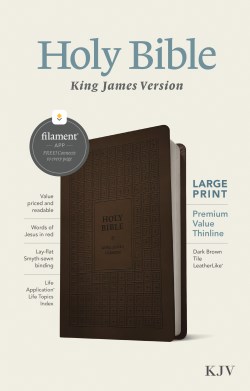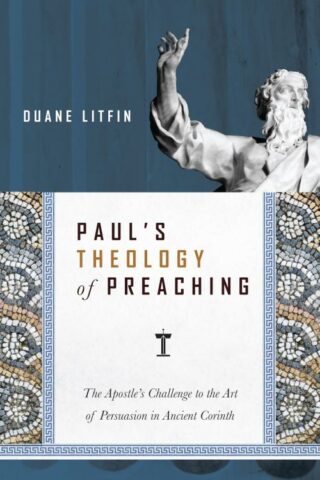Duane Litfin
Showing the single result
-
Pauls Theology Of Preaching
$44.99List Of Excurses
Preface
Acknowledgments
Abbreviations
Introduction
Part One: Greco-Roman Rhetoric
1 The Beginnings
2 The Goal Of Rhetoric
3 The Power Of Rhetoric
4 The Reach Of Rhetoric
5 The Genius Of Rhetoric
6 The Appraisal Of Rhetoric
7 The Hazards Of Rhetoric
8 The Rewards Of Rhetoric
9 The Grand Equation Of RhetoricPart Two: 1 Corinthians 1-4
10 Paul And Rhetoric In Corinth
11 The Setting Of 1 Corinthians 1-4
12 Paul’s Argument Introduced: 1 Corinthians 1:1-17
13 Paul’s Argument Begun: 1 Corinthians 1:17-20
14 Paul’s Argument Encapsulated: 1 Corinthians 1:21
15 Paul’s Argument Continued: 1 Corinthians 1:22-2:5
16 Paul’s Argument Completed: 1 Corinthians 2:6-4:21Part Three: Summary And Analysis
17 Paul’s Ministry Model
18 Final Questions
19 Appropriate StrategiesConclusion: The Pauline Model
Appendix One: Paul, Apollos And Philo
Appendix Two: The Book Of Acts
Appendix Three: Paul’s Epistemology
Appendix Four: Implications For Preaching
Appendix Five: Broader Implications
Works Cited
Author Index
Scripture IndexAdditional Info
Duane Litfin, former president of Wheaton College, explores how Paul’s theology of preaching can inform the church’s preaching today. Through a detailed study of 1 Corinthians 1-4, Litfin shows how Paul’s method of proclamation differed from Greco-Roman rhetoric and how Pauline preaching can be a model for the contemporary preaching task.Add to cartin stock within 3-5 days of online purchase











